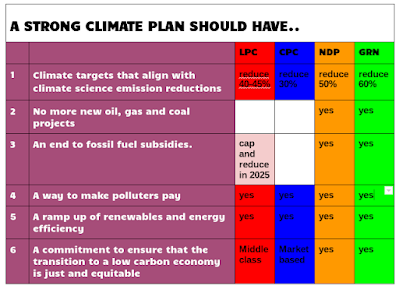The need for affordable housing in Canada has reached a crisis level. The plans of the political parties seeking election in September contain incentives, regulations and restrictions to hopefully increase the supply of affordable and deeply affordable housing.
CBC The Current asks two nonpartisan experts what the parties are promising on affordable housing ahead of election day. Leilani Farha, former U.N. Special Rapporteur on the right to housing, now the global director of the Shift, an organisation that's focussed on that issue, speaking on CBC the Current, thinks the parties need to get their head around addressing homelessness. It has to be urgent and a priority. These are life and death situations.
These are situations that are desperate and need to be addressed. She thinks we definitely need more supply in the country. That's a given, but it's what kind of supply. It is necessary to encourage supply, but encourage affordable and deeply affordable supply. She thinks that has to be a priority. Housing is understood as a human right, and there are a lot of people who are not at all enjoying that right in any way in this country.1
Murtaza Haider, professor of data science and real estate management at Ryerson University and research director of the Urban Analytics Institute, thinks homelessness is a thing that he was expecting a little more on because he saw some mention of it in each platform.
Conservatives and NDP call it a crisis. They have put forward plans to increase the supply of new housing or new construction. They have to put measures to help new home buyers, especially First-Time Homebuyers or the Millennials, to purchase more homes. There's some programmes to increase the construction of new rental housing. But if you put all of these together, these programmes are not aggressive enough to address the almost five decades of under-construction that we have built fewer homes than we were building in the 70s on a per capita basis in Canada, which has created this state where housing is unaffordable for many people, both renting and buying.1
Natasha Bulowski comments that the sad truth is, Canada’s housing affordability crisis has been 30 years in the making. In a nation where housing needs drastically outstrip availability in most cities, and where the private sector is unwilling or unable to build more truly affordable units, could the COVID-19 pandemic offer a once-in-a-lifetime opportunity to embrace new policies and new partnerships with the non-profit housing sector? Could we not use this moment to fix Canada’s housing crisis for good times and bad?
“The private sector is not going to get us out of our housing emergency,” said Ottawa-Centre Councilor Catherine McKenney when I spoke to her in March. “When we talk about affordable housing, supportive housing, social housing, we can’t look at a profit margin. We have to look at a health, social service margin. We have to make sure people are well taken care of and once you put profit into that you will lose that.” Not only must cities figure out ways to prevent the erosion of existing housing stock—“so that we aren’t losing that affordable stock as property owners and landlords renovate and push out tenants,” said McKenney—but also how to drastically increase the construction of new affordable rental units, preferably by public or non-profit actors and in combination with provincial and federal rental assistance programs, so that people can afford to pay for their homes.2
John Rapley, a political economist at the University of Cambridge, speaking on CBC Cross Country Checkup, notes that Canadians value the gains they've made from a soaring housing market. While he welcomes plans to create more housing stock, Rapley warns that new developments will likely face opposition. Communities may push back against plans to increase a neighbourhood's density, which could cause projects to move to lower-income areas or the outskirts of cities, adding to urban sprawl. He believes it won't be up to governments to decide how to move forward, but rather what Canadian homeowners will allow them to do.
"You can't actually just say we'll build cheap houses here and [have] all the other houses keep their same value. Once you add supply to the market, the price and everything comes down, and that's not popular."3
Canada's major federal parties have shared their visions for making housing accessible, offering up ideas from restrictions on foreign buyers to building more housing.3With many prospective homebuyers feeling squeezed out of the market, and others struggling to find reasonably priced rent in cities across the country, housing affordability has emerged as a key issue for voters ahead of the Sept. 20 election.
References







